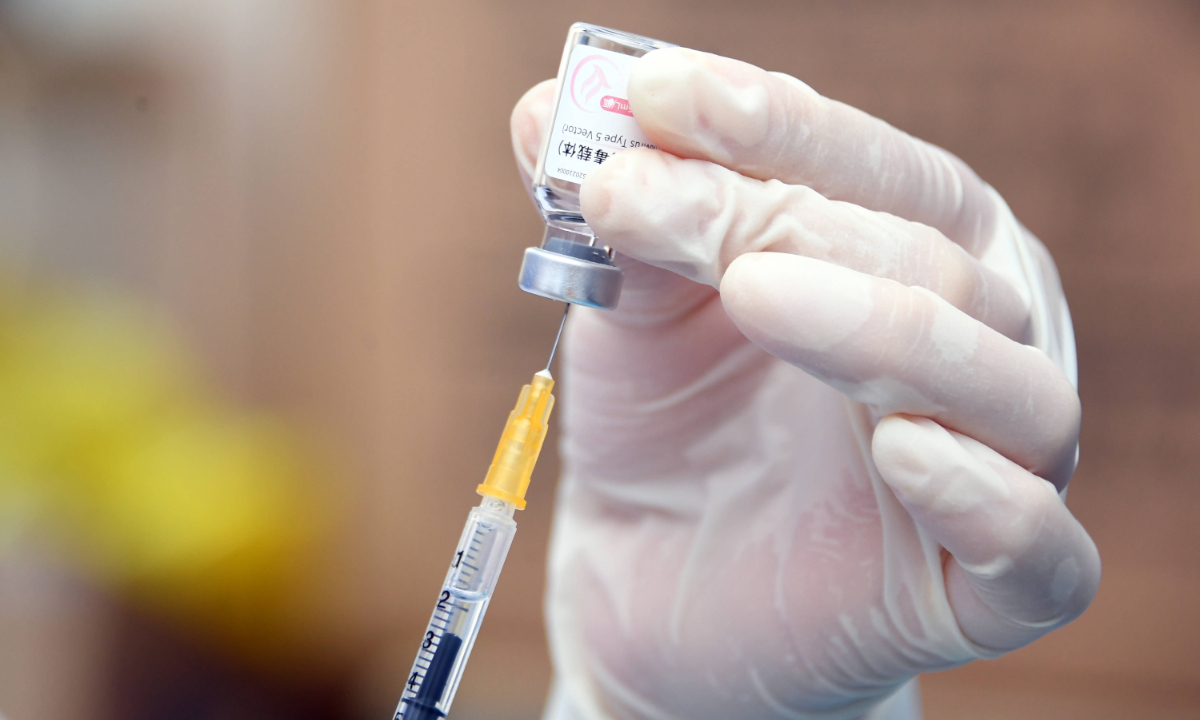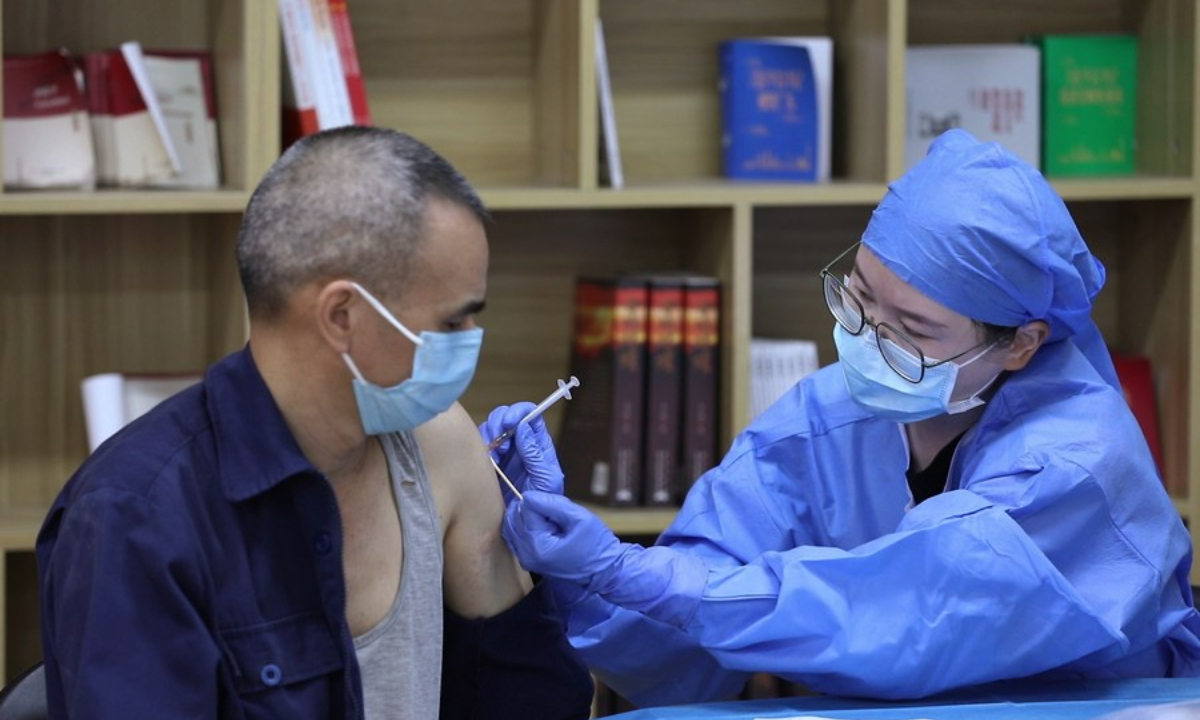
A medical worker prepares to administer a dose of COVID-19 vaccine at a temporary vaccination site in Haidian District of Beijing, capital of China, May 20, 2021. Photo:Xinhua
China's incumbent Party and state leaders have all been vaccinated with domestic COVID-19 vaccines, a Chinese health official confirmed at a press conference on Saturday. With the news released at a time when China is going all out to promote vaccination among the elderly, experts said that it showed the leaders' confidence in domestic vaccines and would help encourage more elderly people to get vaccinated.
Zeng Yixin, deputy director of the Chinese National Health Commission (NHC), revealed the information when asked whether Chinese leaders had been vaccinated. He noted that the vaccination of Party and state leaders demonstrated Chinese leaders' emphasis on epidemic prevention and control work and their strong confidence in domestic vaccines.
Party and state leaders usually refer to leaders who hold national or vice-national administrative rank in the Communist Party of China (CPC) and the Chinese state, including 25 members of the Political Bureau of the CPC Central Committee.
The announcement came as China still has a comparatively low vaccination rate among the elderly group, especially those aged 80 and above.
Tao Lina, a Shanghai-based expert on immunology and vaccines, told the Global Times on Sunday that the announcement was aimed at reassuring the public of the safety of domestic vaccines, dispelling some elderly people's doubts and encouraging them to get vaccinated.
According to an updated Global COVID-19 Vaccination Strategy the World Health Organization published on July 22, countries should prioritize achieving the underpinning targets of vaccinating 100 percent of health care workers and 100 percent of the most vulnerable groups, including older populations (over 60s) and those who are immunocompromised or have underlying conditions.
The vaccination of some high-risk groups, such as the elderly and children, in China still needs to be promoted, experts noted.
Feng Zijian, the executive vice chairman of the Chinese Preventive Medicine Association, revealed at the Saturday press conference that 40 percent of the 35 million people aged 80 and above in China have not been vaccinated even though Omicron still poses a great threat to the group.
Despite its lower severity, the Omicron variant is more contagious, which means that once the virus spreads to Chinese communities, a large number of elderly people will become infected, posing a risk to their lives, especially those who have underlying diseases, according to Tao.
Considering this, a high vaccination rate among the elderly, especially among those aged 80 and above, is a vital precondition for China to fully reopen its borders amid the pandemic, Tao said.
In addition, further study and understanding of the novel coronavirus and how it mutates as well as full preparations including high vaccination coverage, especially for the elderly and other vulnerable groups, medical resources such as isolation beds, effective medicines and emergency protocols, are also needed before the country can fully reopen, experts said.
Zeng from the NHC noted that three China-developed COVID-19 vaccines had been included in the World Health Organization's emergency usage list. More than 100 countries and regions had approved usage of China's vaccines and in many cases China-produced shots are the only ones that can be used on underage children.
Leaders in more than 30 countries and regions like Turkey, Serbia, Cambodia, the Philippines and Chile have received Chinese vaccines, Zeng said.
All those facts indicate that China-manufactured vaccines have been widely accepted by the international community, he stressed.

A senior citizen receives COVID-19 vaccine at a vaccination site in Haizhu district of Guangzhou, south China's Guangdong Province, April 7, 2022. Photo:Xinhua
China kicked off nationwide mass vaccination in early 2021. As of Friday, a total of 3.4 billion COVID-19 vaccine shots had been administered in the Chinese mainland, according to data released daily by the NHC.
Data collected during the mass vaccination rollout showed that China-produced vaccines are safe and the rate of reported side effects is lower than other regular vaccines, Feng said at the Saturday press conference.
According to Feng, as of May 30, a total of 238,215 side effect cases following vaccinations had been reported, equal to an incidence rate of 70.45 per one million shots.
Among the side effect reports, more than 82 percent were normal responses such as isolated pain and transient fever, and more than 5 percent were abnormal responses such as allergic eruption, according to Feng.
Overall, the rate of side effects following the administering of Chinese COVID-19 vaccines were lower than that of other normal vaccines, including polio and flu vaccines, administered in China in 2020. There have been no safety issues over Chinese shots reported in overseas countries and regions, demonstrating the safety of China's vaccines, Feng noted.
Wang Fusheng, an academician from the Chinese Academy of Sciences, noted at the Saturday press conference that COVID-19 vaccines do not cause leukemia or diabetes, as claimed by some posts circulating on social media. Nor do they cause tumor spread or antibody-dependent enhancement, as some posts had claimed, Wang said.





